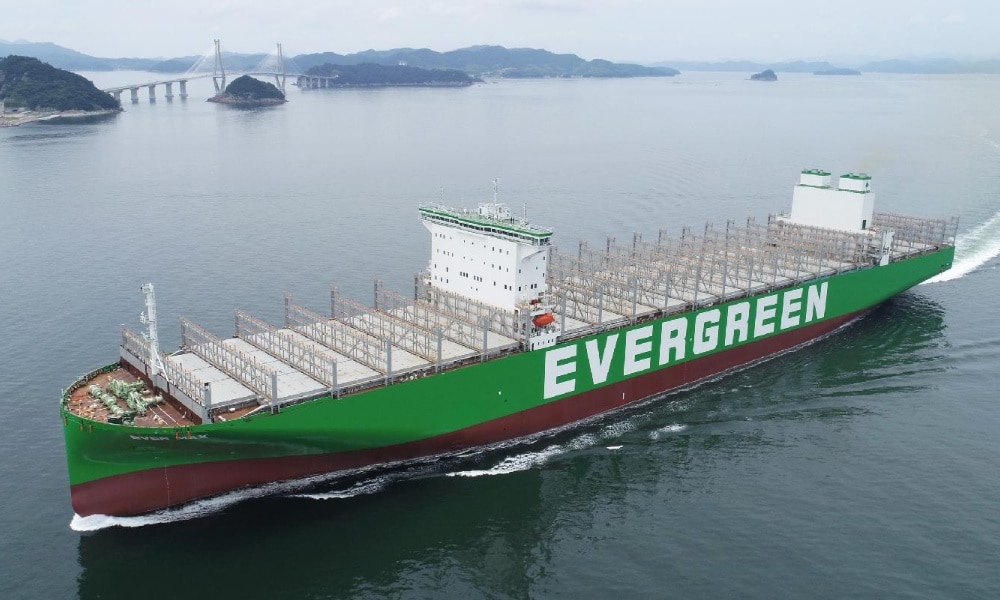Samsung Heavy completes transpacific trial of AI-powered navigation system
Samsung's Autonomous Ship Completes Historic Voyage

Samsung Heavy Industries has marked a significant milestone in maritime technology by successfully completing a transpacific voyage using its proprietary autonomous navigation system. This achievement highlights the competitive landscape among South Korean shipyards striving to dominate the AI-driven shipping sector. The vessel, equipped with the Samsung Autonomous Ship (SAS) system, navigated from Oakland to Kaohsiung, showcasing advanced capabilities in automated navigation.
Innovative Technology in Action
The SAS system was integrated into Evergreen Marine’s 15,000 TEU containership, which undertook a journey spanning over 10,000 kilometers from August 25 to September 6. Throughout this voyage, the SAS executed 104 optimal guidance operations and performed 224 automated control interventions. By utilizing a combination of radar, GPS, and camera inputs, the system managed the ship’s engines and rudders autonomously, eliminating the need for crew intervention.
Samsung Heavy Industries reported that the SAS system conducted weather analyses every three hours, allowing it to automatically adjust the vessel’s route and speed. This capability not only ensured timely arrivals but also contributed to reduced fuel consumption. Lee Dong-yeon, head of SHI’s Shipbuilding and Offshore Research Institute, emphasized the evolution of SAS, stating that it has progressed from a mere collision avoidance tool to a fully autonomous system capable of maintaining economical speeds and meeting scheduled arrival times.
Initially launched in 2019, the SAS system is currently undergoing extended trials with Evergreen Marine, focusing on optimizing routes to enhance fuel efficiency further. Samsung views this technology as essential for addressing the dual challenges of punctuality and lower emissions in the shipping industry.
Competitive Landscape in Autonomous Navigation
This successful demonstration underscores a broader trend within the shipbuilding industry, where companies are transitioning from prototype development to commercial-scale trials of AI navigation systems. Samsung Heavy Industries is not alone in this endeavor; rival HD Hyundai has also conducted similar demonstrations of its autonomous navigation platform on transoceanic voyages. This competition between Korea’s leading shipbuilders is intensifying, as both companies aim to establish themselves as frontrunners in the rapidly evolving field of autonomous maritime technology.
Ammonia FPSO Design from Samsung Heavy Industries Receives ABS Approval
As the industry continues to innovate, the implications of these advancements could reshape the future of shipping, making it safer, more efficient, and environmentally friendly.
